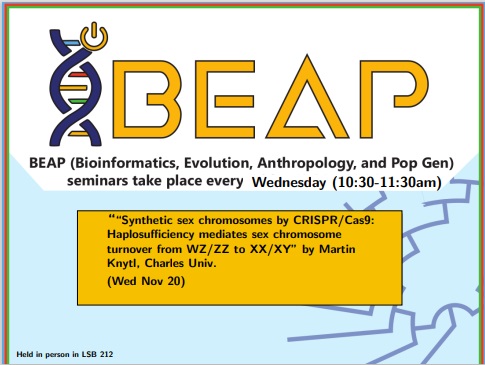Biology seminar series, Thursday 4:00 PM in HSC 1A5: Danielle Montocchio
Our own Danielle Montocchio will kick off our seminar series with her exit seminar!
There will be coffee and snacks before the seminar. Please bring your own mug.
Thursday 19 Sep, 4:00PM, in HSC 1A5.
Evaluating ecological responses of Georgian Bay coastal wetlands to two decades of atypical water levels
Georgian Bay (GB) coastal wetlands are unique among the Great Lakes for being exposed to low levels of human disturbance. The major current threat is climate-induced extremes in water-level (WL) fluctuations that included 14 continuous years of record low WLs beginning in 1999, followed by an extended 8-year increase in WLs, including the highest monthly WL in July 2020. My first goal was to determine whether wetland health had been impacted by these two decades of atypical WLs, and if so, whether or not published ecological indices would be affected by WL-conditions. Secondly, I wanted to identify low-water and high-water indicators that could help managers forecast changes in macrophyte and fish communities under future WL regimes. I compared scores of three wetland health indices between the initial period of low WLs and the latter period of high WLs and found that concentration-dependent variables in the Water Quality Index were artificially reduced in concentration due to the dilution effect of high water in the latter period, and therefore led to inflated index scores. I also determined that while the biotic indicators (Wetland Fish Index and Wetland Macrophyte Index) were robust to changing WLs, the index scores masked significant changes in the taxonomic composition of the fish and plant communities. Using Indicator Species Analysis and Veech’s (2013) Co-occurrence Analysis, I identified ten Low-Water Plant Indicators and four High-Water Plant Indicators, as well as seven corresponding Low-Water Fish Indicators and four High-Water Fish Indicators. Overall, the macrophyte community changed significantly from one dominated by emergent and rosette basal plant species in low water to one dominated by unrooted submergent in high water, while the fish community changed from fish species that tolerated shallow, low-density submersed vegetation in low water, to a community with increased proportion of fish species that favoured deep water, and dense submerged vegetation. I also found that fish data were significantly affected by the survey method used and developed an innovative method to capture fish using underwater cameras and citizen science. My results will advance our understanding of ecological resilience of Georgian Bay coastal wetlands to long-term WL fluctuations and allow ecologists to model how the marsh communities will respond to future climate-induced extremes in WL.
NewsRelated News
News Listing
5 days ago
5 days ago

